Image Credit: ImThaz Ahamed | Unsplash
Changing a flat tyre is a life skill that everyone (male, female, motorist or not) should possess. It’s not a confusticatingly tedious process, and as long as you’re willing and equipped, the whole operation should take no longer than 15-20 minutes. If you find yourself a little clueless, fret not: Here’s exactly how to change a flat tyre safely:
1. Find a safe spot
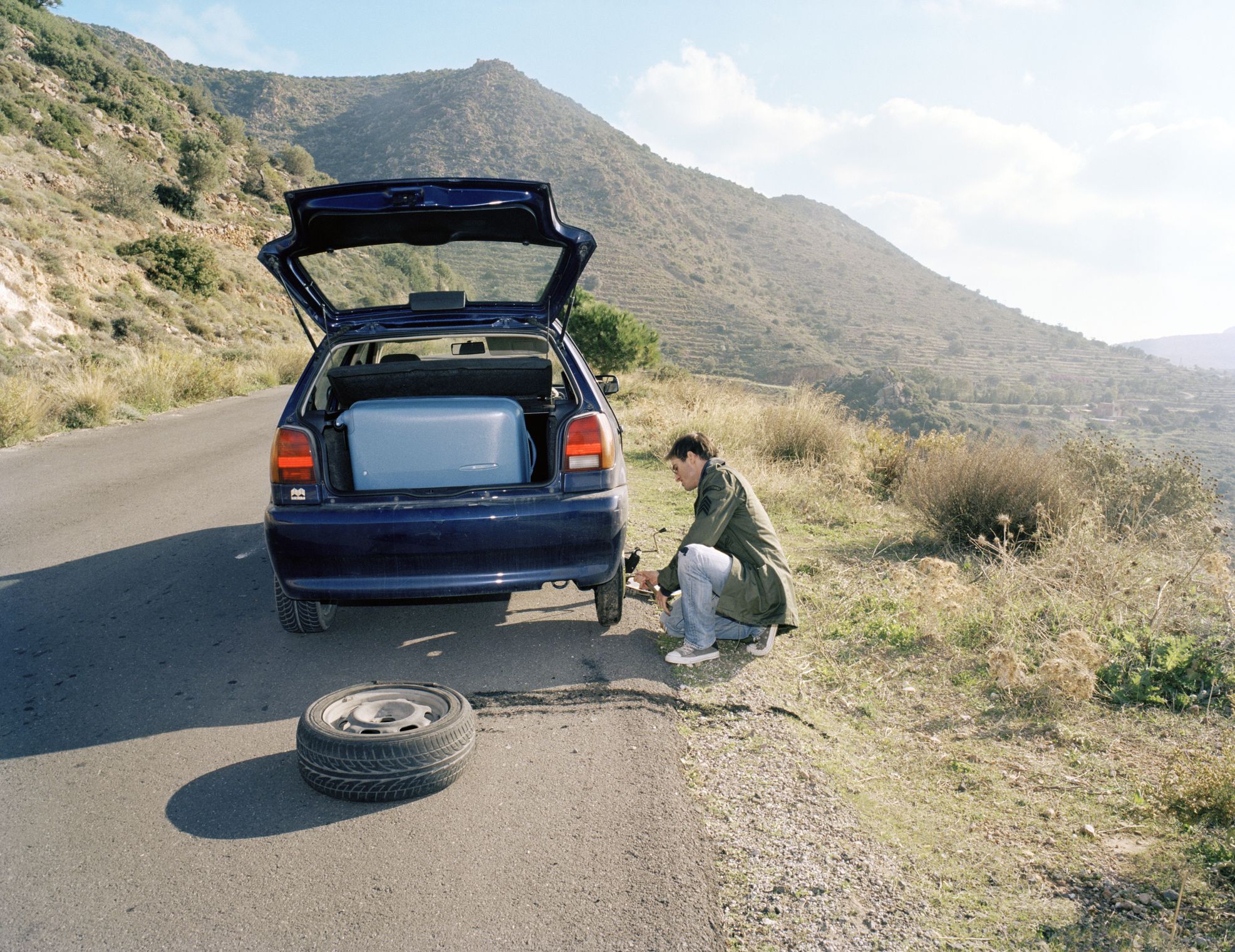
Image Credit: Popular Mechanics
Alright, so you’re on the road, and your tyre’s gone out. Breathe. Now, follow these steps:
On an expressway:
- If you are on an expressway, try to exit it and park in a safe area.
- Do not attempt to change your own tyre if you are on an expressway, as it is unsafe.
- If you are unable to exit the expressway, pull over to the shoulder of the road and call for emergency roadside assistance (link to our hotline).
On other roads:
- Slow down smoothly
- Turn your hazard lights on
- Drive slowly to a safe spot where you can change your tyre (like a wide, empty road, or car park)
- Ensure the spot you’ve chosen is a flat and even road (you don’t want your tyre rolling away, do you?)
- Park and place a reflective safety triangle about 3m away from your car to warn other motorists
Now that we’ve got the above covered, here are the tools you’ll need:
| Must-haves | Good-to-haves |
| Scissor jack | Gloves |
| Spare Tire | Torchlight |
| L-shaped or X-shaped Wheel wrench |
Wheel wedge (You can also use a brick or a large rock) |
2.Use your wheel wrench to loosen the lug nuts
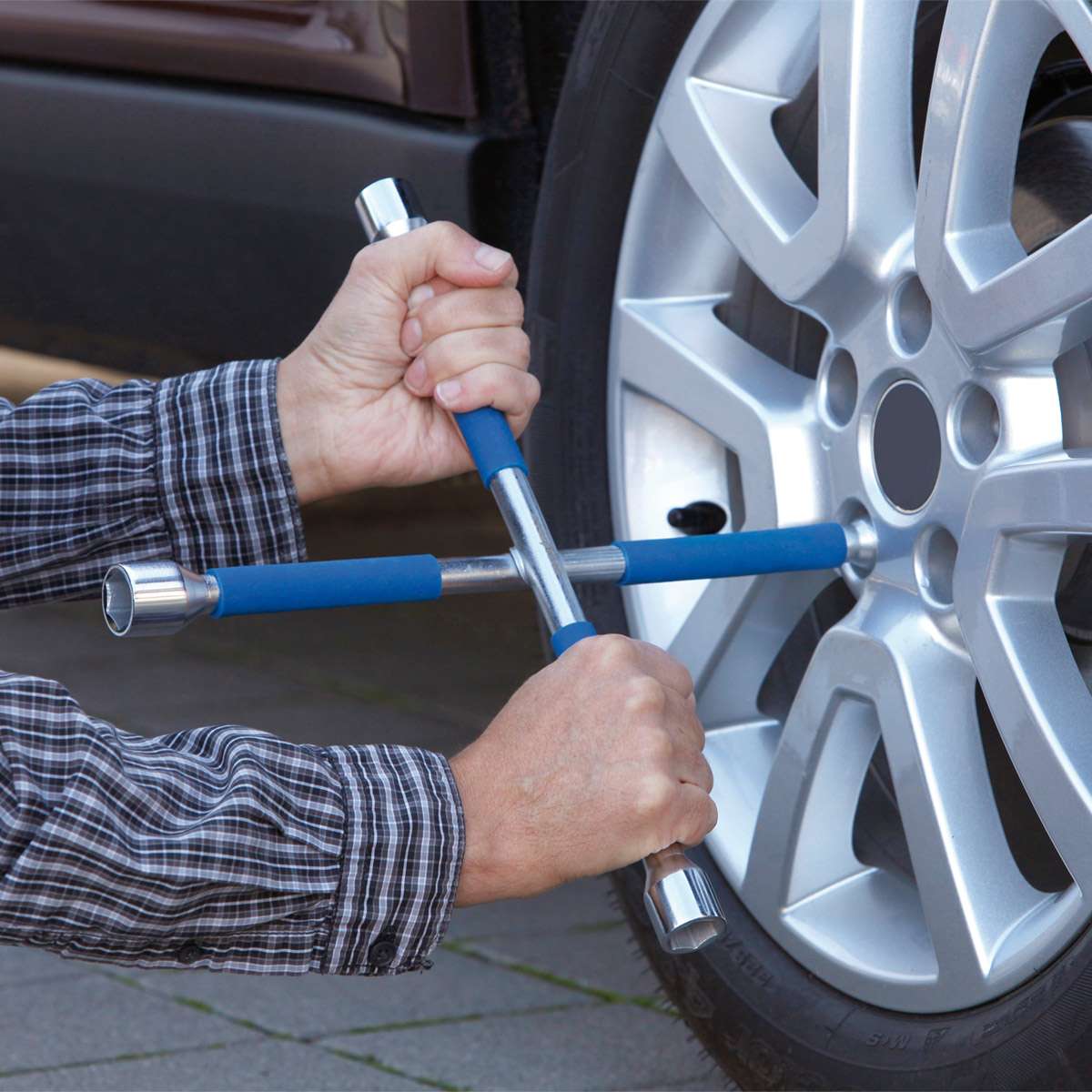
Image Credit: GoodYearStone
It’s time to get your tools from your car boot and lay them neatly on the ground next to you. Avoid having it all in a messy pile, as it’ll only confuse you.
- With the L or X-shaped lug wrench, loosen the lug nuts (wheel nuts) from the tyre
- Turning the wrench counterclockwise to loosen the nuts (Some arm strength is needed here)
- Loosen all the applicable lug nuts
- Leave them there – You’ll remove them laterIt’s time to get your tools from your car boot and lay them neatly on the ground next to you. Avoid having it all in a messy pile, as it’ll only confuse you.
3. Lift Your Car with the Car Jack Before Removing Lug Nuts
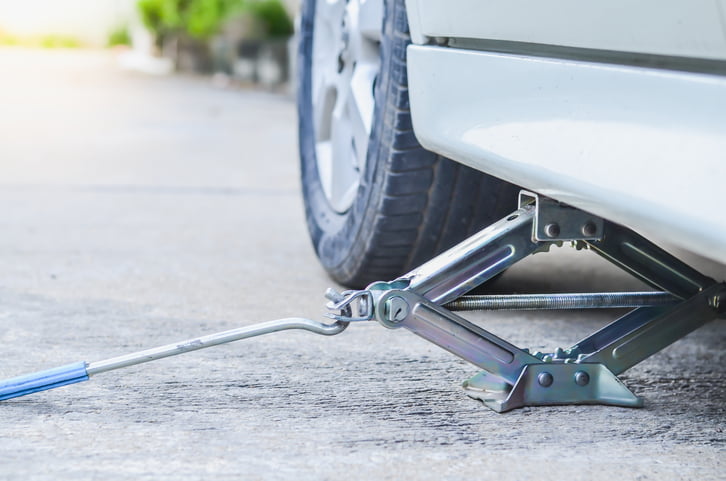
Image Credit: Holt Llyod
It’s now time to position your car for the procedure, you tyre-less car surgeon. Follow these steps and you shall not fail in your endeavour:
- Position the car jack underneath the frame near the tyre that you are going to change
- There should be a metal frame or small notch for you to place the jack
- If you are unsure on where to place the jack, please refer to your owner’s manual
- Place the wheel wedge (or brick, or rock) against the wheels that aren’t raised to prevent it from rolling back when it’s lifted
- If you’re changing a front tyre, block the back wheels, and vice versa
- Secure the jack
- Turn the hand crank and raise your car till there’s enough room for the next step:
- Remove the flat tyre and lug nuts from the wheel hub
- Doing good so far, soldier – Carry on
4. Remove the flat tyre and get your spare on

Image Credit: Tory Bishop | Unsplash
It’s now time for the transplant, doctor. You ready?
-
- Place the flat tyre flat on the ground so it doesn’t roll away into the deep like Adele
- Take your spare tyre and fit it onto the wheel hub
- Double check that you’ve positioned it the right away (not backwards)
- Reattach the lug nuts to the spare tyre
- Tighten them by hand till you meet firm resistance
- She’s still alive, folks
5. Lower Your Car and Finish Tightening the Lug Nuts
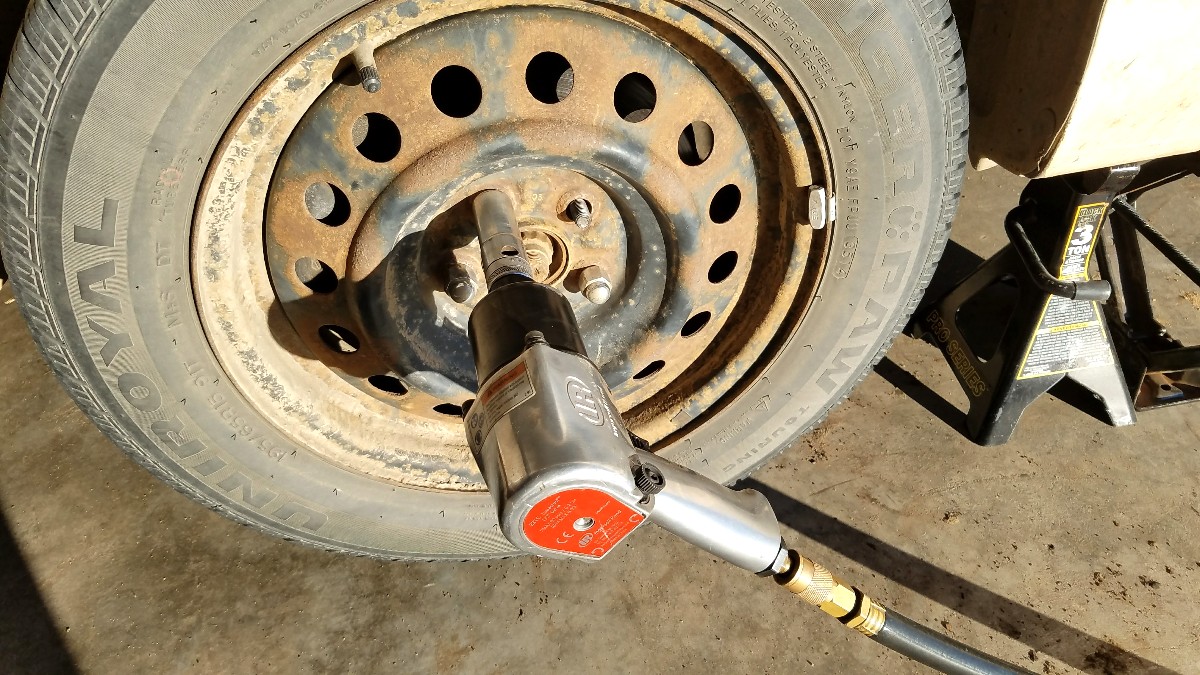
Image Credit: Practical Mechanic
It’s now time to lower your car back down. Here we go:
-
- Use the car jack to lower your car
- Use the lug wrench to tighten the nuts in a star-shaped pattern
- Ensure it’s all tight and aligned
- Place your flat tyre and all your tools in your boot
- And it’s over! You’ve successfully changed your tyre!
- Well, almost…
6. Get your tyre replaced
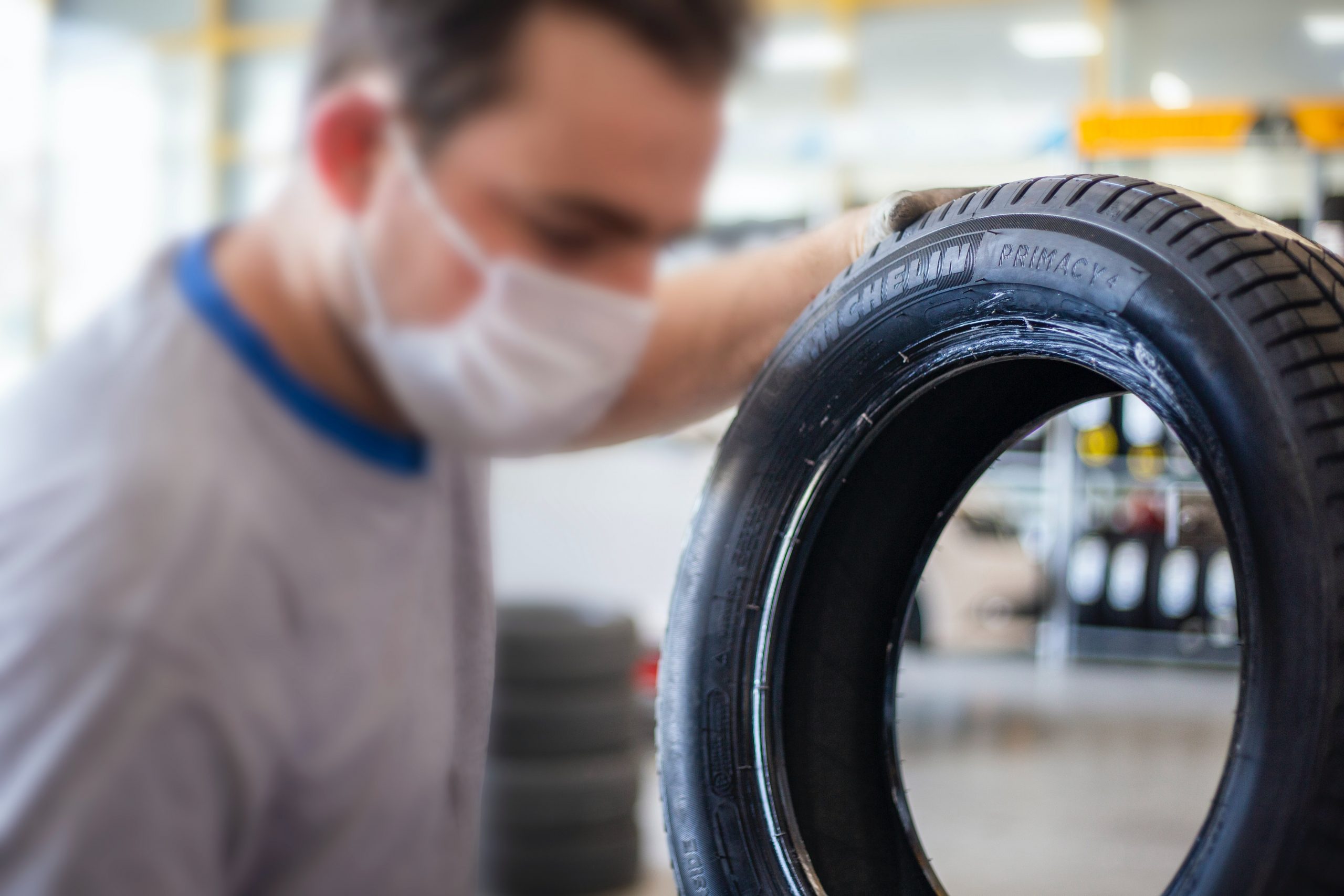
Image Credit: Enis Yavuz | Unsplash
Your spare tyre is there on a temp-job basis, capiche? Most spare tyres are simply not equipped for much mileage or speed. To be safe, do not drive more than 100km, or faster than 80km per hour. Think of it as a disposable container – You’re not going to be able to eat lunch on that thing for more than a week, or poke your utensils too hard, or it’ll cave.
If you’ve just changed your tyre, we’d like to give you an online pat on the back, and offer a toast in your honour: Thou hath proven wise to learneth the skill of changing doth tyre, may the wheels of life bless upon thine life longevity, peace and everlasting safety.
Get in touch with us


